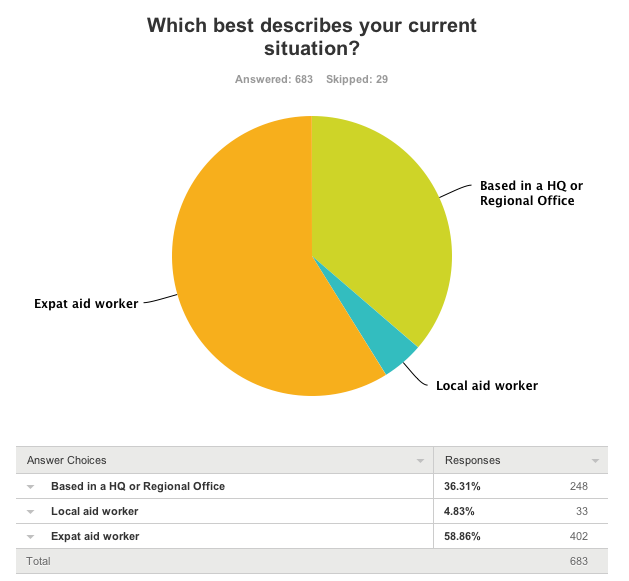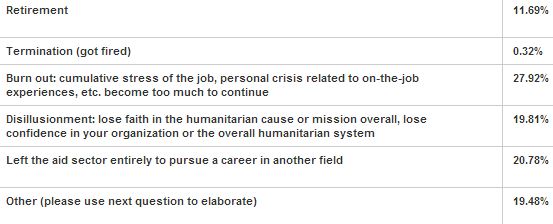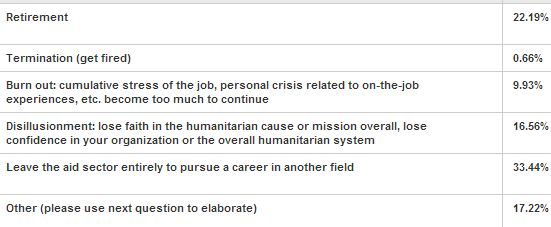Deepening the data with more voices
Where you might come in
We are entering the next phase of our AidWorkVoices project and again need your help, this time from a few of you who want or may be wiling to share your stories.
One of the most interesting nuggets to come from the survey data thus far are the thoughts you’ve had about identity. In the post “You are as you are seen” many of our respondents–you–wrestled with exactly that: how you are seen by those around you matters on many levels. Many of you believe that the way you are seen (for example: young, white, attractive Western female) has an impact on your overall effectiveness. A second impact is that on the self concept of the aid worker: how she or he feels about her or himself.
Our goal at this particular stage is to deepen the data with more in-depth voices speaking about identity management both in the ‘field’ and in other locations, including at home, and throughout the aid industry. We especially want to hear from aid workers whose ‘at home’ identity (what Goffman would call ‘back stage’) may at times present a challenge.
We’re specifically working here with the concept of “master status” in sociology. There are two general categories of master status: Those that are disclosed as soon as people see you, such as skin color, sex (probably), age (possibly), and some kinds of physical disability or special-ability; And those that can remain disclosed with some effort, for example religion (or lack thereof), sexuality, and relationship/marital status.
Who would we like to talk to?
We are interested in more in-depth interviews with aid workers that may have faced and/or currently face workplace challenges related to “how they are seen.” Basically, we want to talk to any aid or development worker in a setting where your sex, sexual orientation, marital status, gender, race, ethnicity, nationality, local/non-local designation, age, religion, worldview, or other identity status somehow shapes your ability to be effective. Some examples include (but of course are not limited to):
- Jewish aid workers in predominantly Muslim locations, or vice versa.
- Atheist aid workers working in faith-based organizations and/or in locations where devotion to some religion is expected (Bangladesh comes to mind, based on recent news coverage).
- Non-heterosexual aid workers in, well, most anywhere.
- Red-headed aid workers (or those with some other exceptional physical attribute. Any 2 meter+ aid workers?)
- Differently-abled aid workers (sight/hearing impaired, ambulatory challenges, etc.)
- Medication dependent aid workers (e.g., insulin dependent).
You get the idea…..
 Specifically we want to arrange open-ended interviews (via phone, Skype or otherwise) with aid workers who deal with identity management issues such as the above. If you are interested and/or have questions please send a message to me (Arcaro) with details of how you would prefer to be contacted.
Specifically we want to arrange open-ended interviews (via phone, Skype or otherwise) with aid workers who deal with identity management issues such as the above. If you are interested and/or have questions please send a message to me (Arcaro) with details of how you would prefer to be contacted.
We expect that interviews will take approximately 30 minutes. While we may need to interact with you as yourself in the context of an interview, we promise to maintain your anonymity in any publication or other external reference to your interview.
The big picture
We are now entering a very intense phase of analyzing and writing about all of the survey results, both quantitative and qualitative. In addition to making regular (weekly) posts to this blog we are in the midst of outlining a book-length treatment of all the results. Our hope is that we have a beta-version draft out by late fall.


 Follow
Follow



